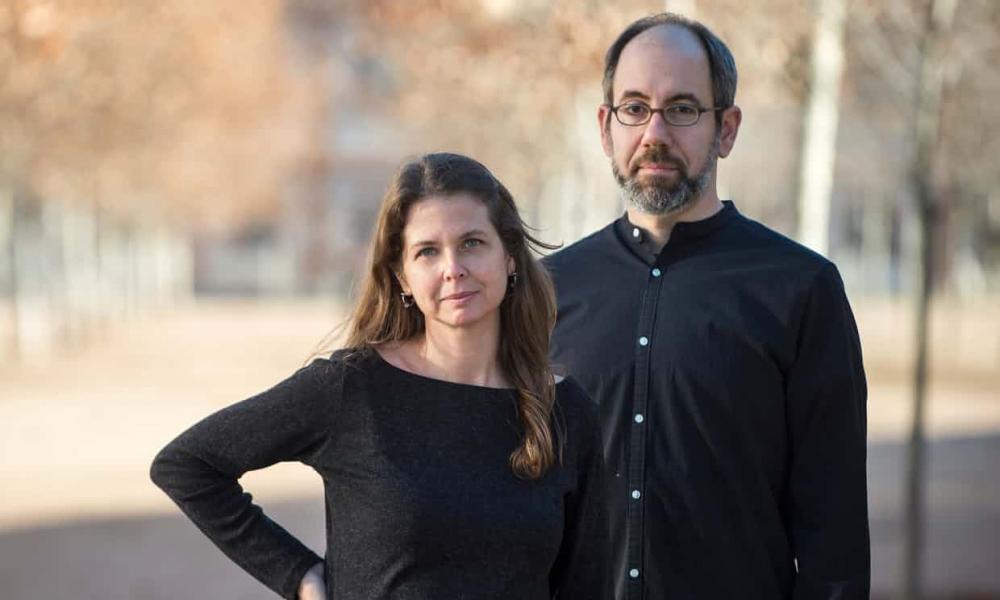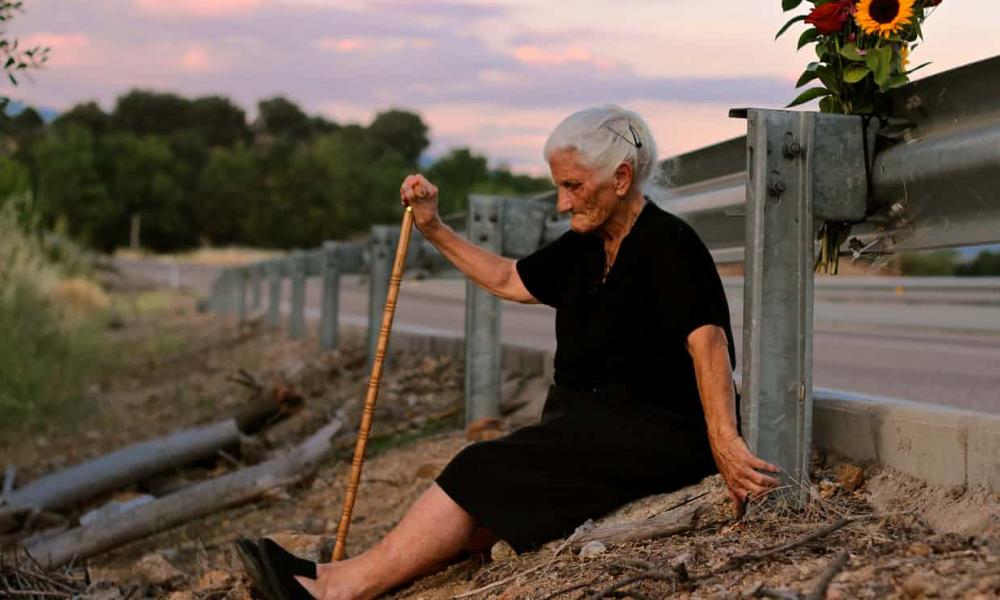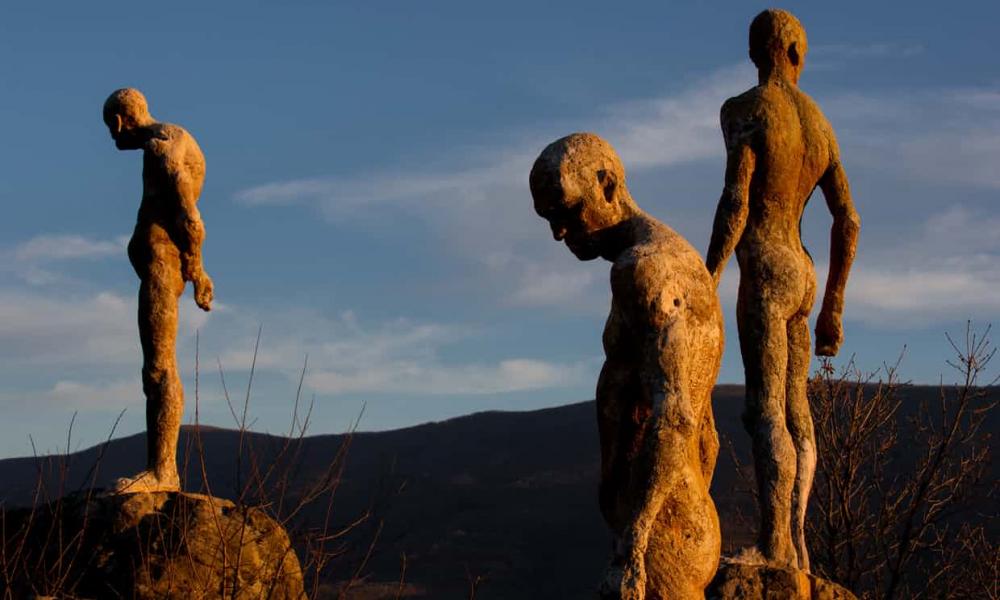Franco's Cruel Legacy: The Film That Wants to Stop Spain Forgetting

Chato Galante, who was stripped of his youth in the prison cells and torture rooms of Franco’s Spain, likes to joke that he is an “unrepentant optimist”. He has had to be.
Almost half a century has passed since he was beaten and jailed for his efforts to fight the dictatorship, but he remains confident that justice will be done, that his torturers will answer publicly for their crimes and that his convictions will be overturned.
Equally optimistic is Paqui Maqueda. Sooner or later, she says, Spain will find the courage to confront the Franco years and their insidious legacy.
Perhaps then she will establish what happened to her elder brother, who is thought to have been one of the thousands of children secretly and systematically stolen from their mothers at birth to be placed with less “degenerate” families.
Galante and Maqueda’s stories feature in an award-winning documentary that examines the enduring consequences of the amnesty law and the “pact of forgetting” that facilitated Spain’s return to democracy after Franco’s death in 1975.
The Silence of Others, directed by Almudena Carracedo and Robert Bahar, chronicles the fight for justice as well as the search for the stolen children and the 100,000 bodies still thought to lie in unmarked civil war graves. Pedro and Agustín Almodóvar are the film’s executive producers.
“Part of it was trying to understand how all of this is possible,” says Carracedo.

“How is it possible today that there are people who are dying before they’re able to exhume their loved ones and bury them in a cemetery in a country with such Christian values? How is it possible that there are thousands of children who don’t know who their parents are?”
The idea for the film came to Carracedo and Bahar eight years ago as details of Spain’s “stolen babies” began to emerge – including the revelation that the practice had not died with the dictator but continued into the 1980s.
At around the same time, a group of victims and survivors of Franco-era crimes filed a lawsuit with an Argentinian court, asking it to investigate cases of torture, assassination, forced disappearances and the stealing of children.
It provided the film-makers with a way into the issues and in 2012, they moved from the US back to Carracedo’s native Spain to begin shooting.
Over the course of six years, and 450 hours of footage, the directors followed the progress of the lawsuit – which is ongoing – in both Spain and Argentina.
At the heart of the film is the contradiction summed up by one of the lawyers in the case, the late human rights specialist Carlos Slepoy: “When someone is murdered it is clear: the courts must prosecute the criminal.
“Yet when we talk about genocide, or crimes against humanity, it’s not so clear. Instead, people start looking for arguments – ‘it was a long time ago’, ‘it’s better to forget’, ‘we must turn the page’.”
Bahar, who is American, thought he had a rough grasp of the Spanish civil war – “we know the painting Guernica; we’ve read Hemingway” – but as filming continued, he realised that many people in Spain and beyond tend to forget, or simply do not know, about the dictatorship that followed.

The Almodóvar brothers say the habit of forgetting has been prevalent in Spain for decades.
“But 40 years on, many of us think that our democracy is strong enough that it should now be able to address basic human rights questions,” says Agustín Almodóvar.
“We feel that this film, which treats these issues with tenderness, respect and care, is a precious instrument to start a conversation that has been silenced for too long.”
Galante, 70, felt a moral obligation to fight the dictatorship after one of his fellow students was murdered by the police in 1969. Convicted of “illicit association” and “illegal propaganda”, he spent a total of seven years in prison and was tortured by the sadistic policeman known as Billy the Kid.
Although his alleged torturer remains free and lives only a 10-minute walk from his home, Galante has not given up on justice.
“Today’s society can’t squeeze itself into a suit that was made in 1978,” he says. “Something is changing. The generation that is opening up the graves now is the grandchildren’s. And the next generations will continue that.”

Like the film-makers, he is cautiously optimistic that the Spanish socialist party’s sudden return to government could yet benefit victims of Francoist crimes.
The previous socialist government of José Luis Rodríguez Zapatero introduced the 2007 historical memory law, which was intended to end the forgetting – but the conservative People’s party of the recently ousted prime minister, Mariano Rajoy, were steadfastly opposed. With the party now out of office, the law could once again be used to find bodies and bring the guilty to trial.
“This country has to do this, I have no doubt whatsoever about that,” says Galante. “I don’t know how far it will go or whether it will leave me more or less satisfied, but today we’re getting closer to the point of no return.”
Maqueda is also certain a change is coming, one that could yet bring her 80-year-old mother some degree of comfort.
Maqueda and her twin sister were born in June 1964, almost exactly a year after her mother was told that her newborn son had died. The circumstances of the baby’s “death” follow a pattern familiar to those investigating the decades-long theft of children.
“Ask my mother how many children she has and she’ll say, ‘Six: five who are alive and one who was stolen from me’,” says Maqueda. “My mum always says she cried so much that God sent her two babies the next year.”
The Silence of Others screens at the Human Rights Watch Festival in New York on 19 June and at the BFI Southbank in London on 7 July.
